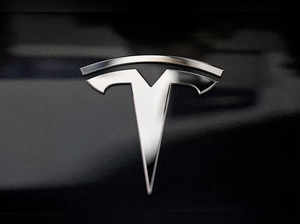
China drives away autonomous Tesla
Elon Musk envisions a future driven by self-driving cars and humanoid robots, potentially transforming Tesla into a trillion-dollar enterprise. However, uncertainties loom over Tesla's ability to deliver on these promises to both consumers and shareholders. Despite Musk's ambitious projections of unlocking ten times Tesla's current value through autonomous vehicles, Chinese competitors are advancing in key technologies like lane-navigation and battery economics.
Elon Musk may have the right vision and his bets on self-driving cars and humanoid robots could, indeed, be the future, but there is no assurance that Tesla will deliver that future to car buyers or company shareholders.
Musk expects to unlock 10 times the current Tesla value from autonomous cars, yet, its Chinese rivals are moving ahead in lane-navigation and battery economics.
In its home market, Tesla is facing competition from carmakers who are producing EVs at price points approaching fuel-burning automobiles.
Tellingly, Tesla is slow in its model refresh rate, which makes its valuation gap with other automobile companies - and Musk's staggering billion-dollar pay cheque - seem like moonshots.
Self-driving cars will do as much again for emissions as the switch to batteries charging on electricity generated from solar energy.
This should come through fractional car ownership, with cars being shared among a larger pool of people, thereby pulling down production numbers.
Yet, Tesla is not striding alone into this future of fewer cars ferrying more people.
The automobile and technology industries are engaged in the pursuit of cars running on clean fuel and being driven by artificial intelligence.
It may be premature to declare a winner, unless you are Musk, whose vision would make him the world's first trillionaire.
His maths for humanoid robots is even more staggering.
Tesla's projected profits from robots could be as much as $1 trillion a year, that is, if the company can produce and sell a billion of these human robots.
Musk sees every human being on the planet wanting to own one of these robots eventually, which frankly is a bit of a stretch for even the most ardent Musk fanboy.
Tesla shareholders don't seem to be buying this in its entirety.
They may have voted Musk his $56 billion payout in a year of falling car sales and job cuts.
It may not be much if some of Musk's vision for Tesla were to materialise, but the company's share price dropped with the latest update, as it has been doing of late.
